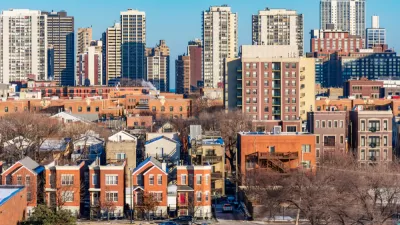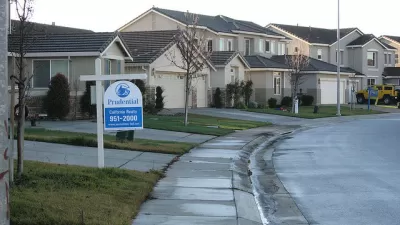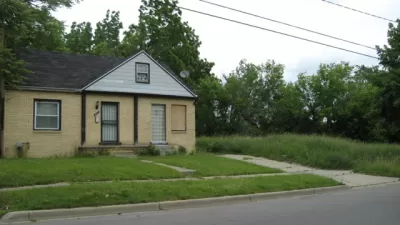Nathalie Baptiste examines the case of Prince George’s County in Maryland near Washington D.C. as a study in how the housing and real estate markets has unjustly attacked the wealth of Black Americans.
"As the wealthiest black-majority county in the United States, Prince George’s has long represented the pinnacle of black success," explains Nathalie Baptiste. "No other majority-black counties in the United States are even comparable in terms of numbers of educated citizens and middle-class incomes, but when the economy crumbled, so did the dreams of many homeowners living in Prince George’s."
"Although the foreclosure crisis left no part of the country untouched, in the Washington, D.C., area—which, overall, weathered the crisis well—Prince George’s County bore the brunt. The reason? Subprime lending."
Baptiste goes on to detail the history of racist policies that precipitated the outsized impacts of the Great Recession and its corresponding housing bust on Black Americans. From among the long article's many data points, here are just a few:
- "Across the nation, black homeowners were disproportionately affected by the foreclosure crisis, with more than 240,000 blacks losing homes they had owned. Black homeowners in the D.C. region were 20 percent more likely to lose their homes compared to whites with similar incomes and lifestyles."
- "The Center for Responsible Lending found that during the housing boom, 6.2 percent of whites with a credit score of 660 and higher received high-interest mortgages but 21.4 percent of blacks with a score of 660 or higher received these same loans."
- "In the Great Recession, according to a working paper [pdf] by Signe-Mary McKernan and colleagues for the Urban Institute, the wealth of U.S. families overall was reduced by 28.5 percent. But for blacks, the authors found, the decline was far greater: a loss of 47.6 percent."
FULL STORY: Them That's Got Shall Get

Alabama: Trump Terminates Settlements for Black Communities Harmed By Raw Sewage
Trump deemed the landmark civil rights agreement “illegal DEI and environmental justice policy.”

Planetizen Federal Action Tracker
A weekly monitor of how Trump’s orders and actions are impacting planners and planning in America.

How Atlanta Built 7,000 Housing Units in 3 Years
The city’s comprehensive, neighborhood-focused housing strategy focuses on identifying properties and land that can be repurposed for housing and encouraging development in underserved neighborhoods.

In Both Crashes and Crime, Public Transportation is Far Safer than Driving
Contrary to popular assumptions, public transportation has far lower crash and crime rates than automobile travel. For safer communities, improve and encourage transit travel.

Report: Zoning Reforms Should Complement Nashville’s Ambitious Transit Plan
Without reform, restrictive zoning codes will limit the impact of the city’s planned transit expansion and could exclude some of the residents who depend on transit the most.

Judge Orders Release of Frozen IRA, IIJA Funding
The decision is a victory for environmental groups who charged that freezing funds for critical infrastructure and disaster response programs caused “real and irreparable harm” to communities.
Urban Design for Planners 1: Software Tools
This six-course series explores essential urban design concepts using open source software and equips planners with the tools they need to participate fully in the urban design process.
Planning for Universal Design
Learn the tools for implementing Universal Design in planning regulations.
Jessamine County Fiscal Court
Caltrans
Institute for Housing and Urban Development Studies (IHS)
City of Grandview
Harvard GSD Executive Education
Toledo-Lucas County Plan Commissions
Salt Lake City
NYU Wagner Graduate School of Public Service





























